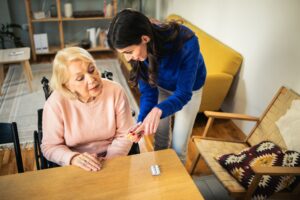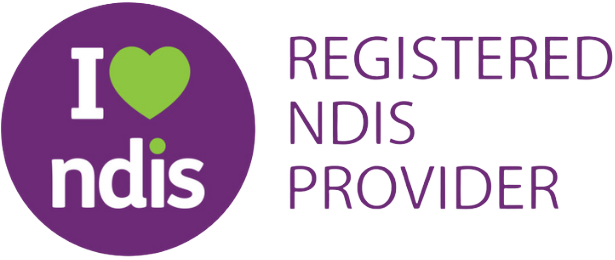For many NDIS participants, the ability to live independently at home is not just a preference. It is a critical part of their well-being, dignity, and quality of life. Home is where people feel most comfortable, and with the proper support, it can also be a space of safety, autonomy, and personal achievement.
Whether you’re a participant, a family member, or a support coordinator, understanding how to maximise independence through the NDIS is key to long-term success. This guide outlines practical strategies, available supports, and considerations to help participants live confidently and independently in their own homes.
Why Independence Matters
Maintaining independence doesn’t mean doing everything alone. It means having the power to make choices, live safely, and manage daily life in a way that suits your goals and abilities.
- Having control over personal routines
- Making decisions about care and services
- Staying connected to the community
- Feeling safe and secure at home
Promoting independence not only boosts self-esteem and emotional well-being but can also reduce the need for long-term institutional care.
Understanding Your NDIS Plan
The first step to maintaining independence at home is ensuring your NDIS plan is set up to support your individual goals. During your planning meeting or review, be clear about what independence means to you. Whether that’s cooking your own meals, managing your medications, or accessing the community without full-time support.
Your goals can guide funding decisions and determine what services or assistive technology you can access to remain in your home safely and confidently. Funding categories that support independence include:
- Core Supports: For daily living assistance like personal care, domestic help, and transport
- Capital Supports: To fund home modifications or assistive technology
- Capacity Building Supports: For skill development, therapy, and training to help you become more self-reliant
Home Modifications to Improve Safety
A well-designed living space can make a huge difference in promoting independence. NDIS participants may be eligible for funding to modify their homes to ensure accessibility, safety, and ease of movement.
Examples of home modifications include:
- Installing grab rails in bathrooms and toilets
- Ramps or lifts to replace steps and improve mobility access
- Widened doorways to accommodate mobility aids
- Lever-style door handles or automated doors
- Accessible kitchen and bathroom layouts
These changes can empower participants to carry out more daily tasks independently and reduce reliance on carers.
Personalised Daily Living Support
NDIS participants can access support workers who assist with personal care and daily living activities while encouraging skill development. The goal is not just to do things for you but to help you do things for yourself over time.
Support services may include:
- Assistance with hygiene and grooming
- Help with preparing meals
- Guidance in managing medication or routines
- Support with shopping, budgeting, or paying bills
Support workers can also act as a safety net, ensuring participants remain safe while building confidence and independence.
Building Life Skills
Learning new skills or building on existing ones is one of the most powerful ways to increase independence. The NDIS funds Capacity Building Supports that can help participants develop essential skills such as:
- Cooking and healthy meal planning
- Public transport training
- Money management and budgeting
- Communication and decision-making
- Digital literacy and online safety
These skills can significantly enhance a participant’s ability to live independently, manage their home, and interact with the world around them.
Assistive Technology and Smart Home Solutions
Technology plays a growing role in supporting independence for people with disabilities. The NDIS funds a wide range of assistive technology solutions that can help participants perform everyday tasks with less physical effort or greater safety.
Examples of assistive technology include:
- Voice-activated smart home devices such as lights, locks, and temperature control
- Mobility aids like wheelchairs, walkers, and scooters
- Communication devices and speech-generating apps
- Medication management systems
- Alarms, alerts, and emergency response systems
With the right technology in place, many participants find they can do more on their own and feel more secure in their homes.
Maintaining a Clean and Comfortable Environment
A tidy, well-maintained home contributes to physical and emotional well-being. NDIS participants can receive funding for household tasks that may be difficult to manage independently, such as:
- Cleaning and vacuuming
- Washing and drying laundry
- Basic gardening or yard maintenance
- Organising and decluttering
Support in these areas helps participants maintain a healthy living space while reducing physical strain or risk of injury.
Staying Connected Through Community and Social Support
Social isolation can quickly erode a person’s sense of independence. Staying socially active is not just about community engagement. It is about exercising choice, forming meaningful relationships, and participating in life on your own terms.
NDIS-funded supports for social and community participation help participants:
- Join local classes or groups
- Attend events and outings
- Explore hobbies or volunteering opportunities
- Connect with peer support groups
With the right support, participants can maintain relationships, build confidence, and stay involved in their community while living at home.
Working with the Right Support Team
Choosing the right NDIS provider is crucial for maintaining independence at home. Look for a provider who:
- Understands your personal goals
- Encourages skill-building and participation
- Is reliable, respectful, and person-centred
- Offers consistent communication and transparency
When your support team listens to you, respects your choices, and empowers you to do more, your independence grows and so does your confidence.
Final Thoughts
Maintaining independence at home is not a one-size-fits-all goal. For some, it might mean learning to cook meals or manage appointments. For others, it might mean using assistive devices to move around the house safely. The NDIS offers a wide range of services and supports to help participants live the way they choose at home and on their own terms.
With the correct planning, services, and support network, NDIS participants can enjoy greater freedom, comfort, and control over their everyday lives. That is something worth investing in.
Need Help Navigating Your NDIS Plan?
If you’re looking for the proper support to stay independent at home, Alliance Multicare Services is here to help. Our team works closely with participants and families to design flexible, person-centred support plans tailored to your lifestyle. Contact us today on 1800 448 449 to get started.









